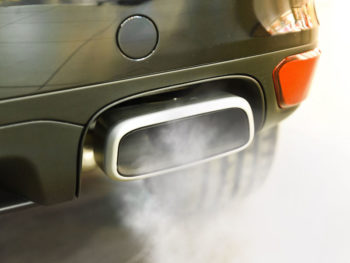According to provisional data, published today by the European Environment Agency (EEA), average carbon dioxide (CO2) emissions from new passenger cars registered in the European Union (EU), Iceland, Norway and the United Kingdom (UK), increased in 2019, but vans only contributed a marginal rise.

The emissions rises marked the third consecutive year of increases in the region and comes despite an ever-increasing green agenda, electrified models arriving to market and governments and car makers all stating their intent to reduce emissions.
The message from the EEA is that zero- and low-emission vehicles must be deployed much faster across Europe to achieve the stricter targets that apply from 2020.
The rise has been partly blamed on the increase in popularity of SUVs, which now account for around 38% of all cars sold in the region, while offering reduced wind resistance and increased emissions and worse fuel economy when compared to a similar-sized hatchback.
Despite the increase in CO2, 9 in 10 vans registered were still powered by diesel, the EEA noted, although the CV segment’s CO2 increase was just 0.5g/km despite the average van weight increasing by 14kg in 2019.
Prior to 2017, there had been a steady decline in CO2 values from 2010 to 2016, by almost 22g/km CO2. According to the EEA’s provisional data, the upward trend continued with an increase of 1.6g CO2/km in 2019, reaching 122.4g/km CO2. This remains below the target of 130g/km CO2 that applied until 2019, but is well above the EU target of 95g/km CO2 that phases-in this year.
Interestingly, diesel cars on average emitted 127.0g/km CO2, which compared to the petrol car average of 127.6g/km. The difference of 0.6g/km was the lowest observed since monitoring began, the EEA said.

